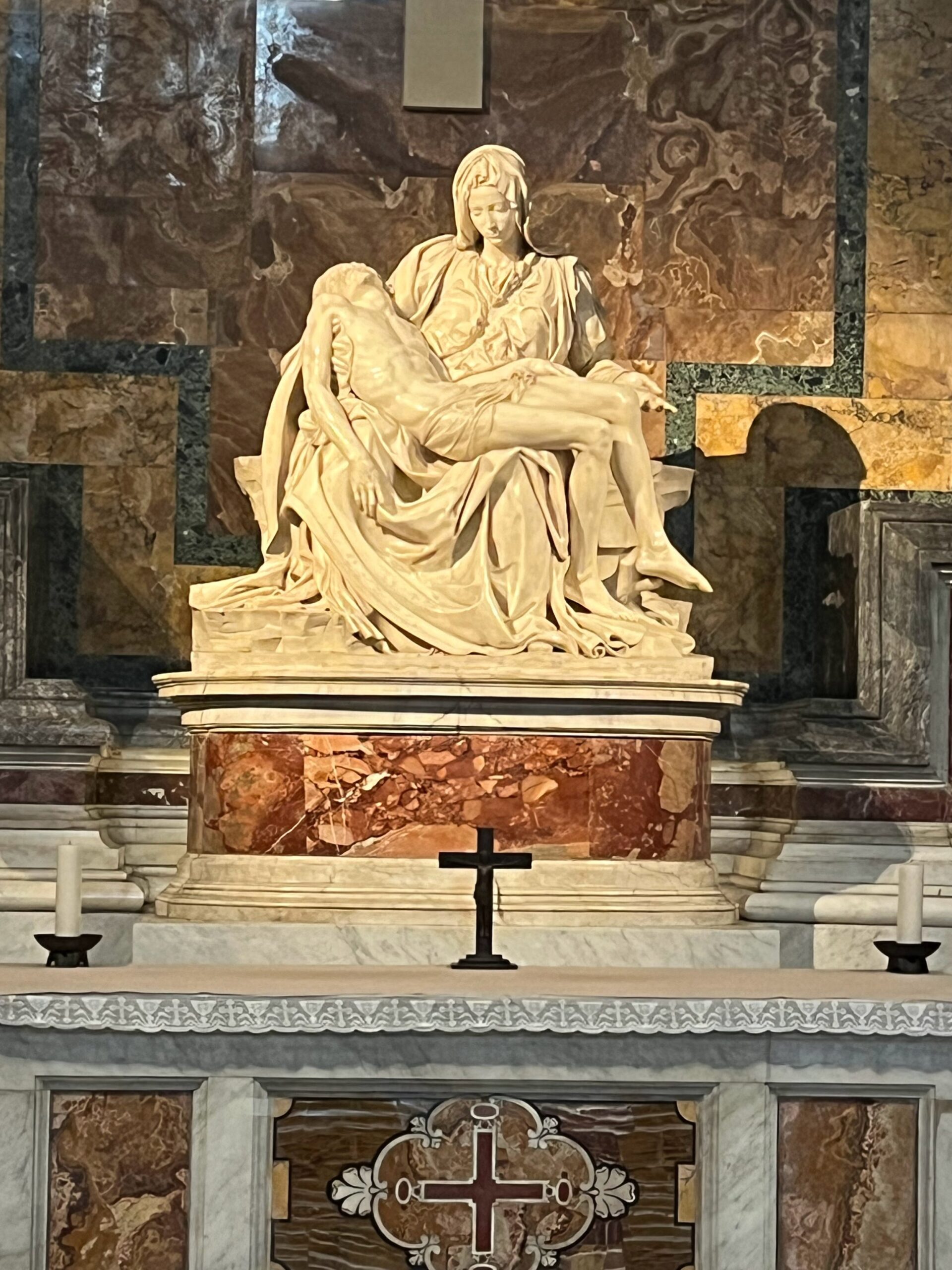
During this Holy Week, Christians in this country and around the world commemorate the suffering, death, and resurrection of Jesus 2000 years ago. This provides an opportunity to reflect on what this means for our world and our lives today. Jesus was executed by the Roman Empire at the prompting of some religious and political leaders who saw his barrier breaking inclusive love as a threat to their systems of purity, law, and order. Unfortunately a popular strand of Christian theology developed that downplayed this reality and interpreted Jesus’ death as a sacrifice to appease an angry God who would condemn people to eternal punishment if they did not express personal belief in Jesus’ death and resurrection..
For others who identify as followers of Jesus today, there is another way to interpret the events of the first Holy Week. This way focuses on how a loving God acted in Jesus to break the cycle of violence that is so destructive to individuals, societies, and nations. Jesus’ life was a consistent example of nonviolent redemptive love in the face of ongoing opposition by those in authority. Even when those authorities conspired to have Jesus arrested and executed, he remained nonviolent and called his followers to that same way. Jesus’ nonviolent redemptive love went so far as to ask God’s forgiveness for those who caused his suffering and death. The resurrection of Jesus three days later was the vindication of nonviolent redemptive love as the revelation of God’s nature and the core truth of human existence. The cycle of violence, retribution, revenge, and domination as the primary human reality is forever broken.
While all this may sound at first like an unrealistic abstraction at a time when our world and our nation are full of the cycle of violence and hatred, we can gain hope through the witnesses of those who took nonviolent redemptive love seriously and changed the world. This is one reason that a major focus of our ministry is on the modern Civil Rights Movement. It is an example from our nation’s recent past in which thousands of people remained committed to nonviolence when they were verbally and physically attacked. Their goal was not to dominate their oppressors but to confront the evil of systemic racism and win them over to form a Beloved Community. One of the best examples of their commitment is summarized in the “Birmingham Pledge” taken by people of all ages who participated in nonviolent direct action during the famous Birmingham Campaign of 1963. I cannot think of a better way to celebrate this Holy Week than to share this pledge that calls us to follow Jesus’ way of nonviolent redemptive love that breaks the cycle of violence and hatred. What would our churches, communities, and nation look like if those who identify as Christians made these same commitments today? We will only know if it begins with us:
I HEREBY PLEDGE MYSELF – MY PERSON AND BODY – TO THE NON-VIOLENT MOVEMENT. THEREFORE I WILL KEEP THE FOLLOWING TEN COMMANDMENTS:
-
MEDITATE daily on the teachings and life of Jesus.
-
REMEMBER always that the nonviolent movement in Birmingham seeks justice and reconciliation – not victory.
-
WALK and TALK in the manner of love, for God is love.
-
PRAY daily to be used by God in order that all men (people) might be free.
-
SACRIFICE personal wishes in order that all men (people) might be free.
-
OBSERVE with both friend and foe the ordinary rules of courtesy.
-
SEEK to perform regular service for others and for the world
-
REFRAIN from the violence of fist, tongue, and heart.
-
STRIVE to be in good spiritual and bodily health.
-
FOLLOW the directions of the movement and of the captain of a demonstration
